The content of the article
Some future mothers are wary of nuts, as there is an opinion about the dangers of nuts when carrying a child. There is no unambiguous evidence for this assumption, since each case of intolerance to this product is individual. The body can react not only on the composition of the nuts, but it is different in each species, but also on the amount of food eaten. Therefore, having no clear arguments and contraindications, it is not necessary to exclude cashews from your diet, because this delicacy can be useful not only for the health of the woman, but also to support the normal development of the baby.
Useful properties of cashews
Nuts are nutritious and valuable for the body composition. The content of various natural compounds is balanced. On condition of the correct use of cashews, it will compensate for the deficiency of many substances.
- Vitamins.The greatest amount of vitamins contain group B, as well as A, PP, E, K, D.
- Minerals. The complex of macro and micronutrients includes potassium, iron, magnesium, calcium, sodium, iodine, selenium and other compounds.
- Fatty acids, including Omega 3, Omega 6 and Omega 9.
- Amino acids, proteins, starch, natural sugars, fiber.
The basic composition of the compounds contained in cashew is given, but there are a number of other elements, but in smaller quantities. The complex of all substances allows the use of nuts with the use of not only food, but also in cosmetics, especially for medicinal purposes.
What is the use of cashews during pregnancy?
Unlike other types of nuts, cashew has the most balanced composition that helps to maintain the health of the future mother and baby. Regular use of a quality product, with the condition of its optimal amount, allows pregnant women to support the body and get the following benefits from nuts:
- Prevention of anemia or low hemoglobin, which is a common occurrence during pregnancy.
- Stabilization of pressure at high rates.
- Strengthening of vessels, muscle fibers. The likelihood of seizures and numbness of the extremities is reduced.
- Prevention of beriberi, deficiency of minerals necessary for the normal development of the future baby and the normal state of the mother.
- Maintaining and strengthening the bony tissues of both the woman and the developing fetus.
- Natural stimulation of the digestive tract, including the timely emptying of the intestines.
- A positive effect on the function of the circulatory system and the heart, the load on which increases with the child.
- Weight control. Cashew is quite nourishing and nutritious, but does not contribute to the recruitment of extra pounds.
- Maintaining the normal development of the future baby, including due to the presence of vitamin E, which is often prescribed in antenatal clinics, as a mandatory supplement to the mother’s diet.
- Prevention of gum disease, strengthening of the teeth due to the antimicrobial action, the presence of a number of trace elements.
- A calming effect, with the constant use of the removal of nervousness, normalization of sleep, improvement of brain activity, memory.
- General increase of immunity.
The beneficial properties of nuts are manifested with regular and proper use, as well as with appropriate quantities. Abuse of fruits should not be, it not only does not increase the benefits for the body, but can also become a source of digestive disorders.
Harm cashews during pregnancy
Eaten nuts are not able to cause significant harm to health, if they are ripe, high-quality and used in moderation. The real harm from cashews occurs during allergic reactions to the components contained in nuts, as well as with individual intolerance.
With care you need to eat cashews for serious chronic kidney diseases, the presence of stones. Such pathologies are not unambiguous contraindications, the possibility of including nuts in the diet is discussed with the doctor individually.
In pregnancy, a poor quality product that is not thermally processed or improperly stored can be harmful to health. In this case, there is a risk of poisoning by the resulting bacteria, putrefactive microorganisms and other consequences of spoiled nuts.
How to eat cashews for use
To evaluate the beneficial properties of cashew nuts, you should follow these rules:
- Acquire only high-quality nuts, you can evaluate the product in appearance, structure. Nuts should not be shriveled, no raids are allowed, especially in the form of mold. The color is light, the surface is smooth. You need to acquire purified cashews, preferably already heat-treated.
- Store in a closed container in a dark and better cool place. A great option is a fridge or freezer, especially when a significant amount of cashew was purchased. If the nuts lie for a long time, in a warm or in an open place, then such a product is no longer suitable for pregnant women.
- The daily rate should not exceed 30 grams, it is about 15-18 pieces of nuts. It is recommended to divide the entire portion for the whole day and eat as a light snack, it is better not to mix with other ingredients or sweets.
- For a better assimilation and maximum benefit, each nut should be chewed thoroughly, it is not recommended to eat the whole handful at a time.
- You need to start with a few nuts, and only then bring the portion to 30 grams, even if the product was well tolerated before, no allergies were observed.
To prevent unpleasant situations with the use of cashews, particularly suspicious future mothers can first consult with a physician to exclude individual intolerance.
An important condition for obtaining only the benefits of cashews - there are them in moderation, to monitor the quality and freshness of nuts used.
Video: how are cashews useful?

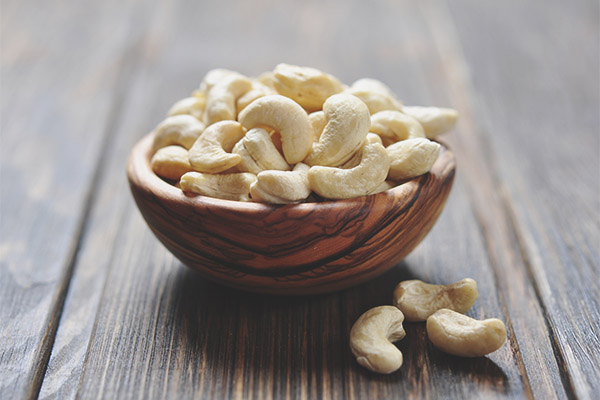
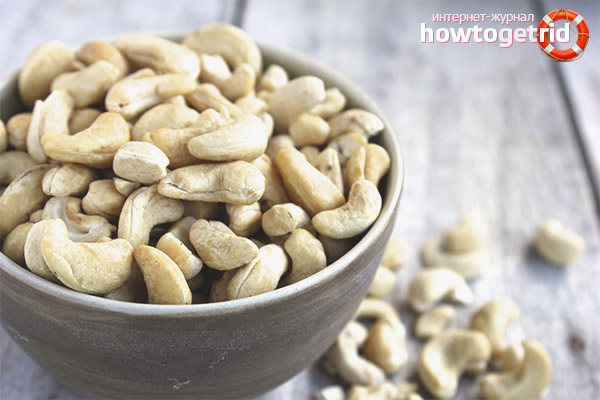

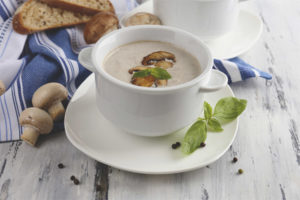
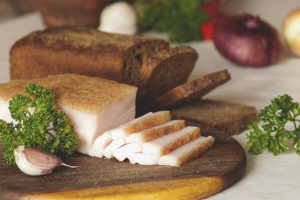
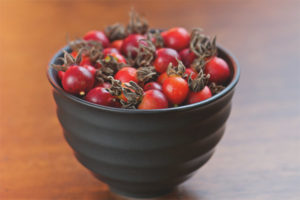

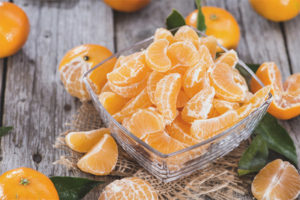
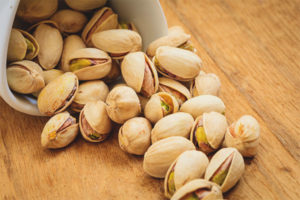

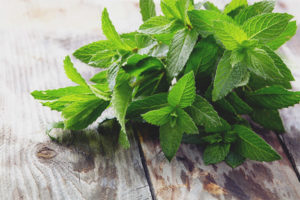
To send